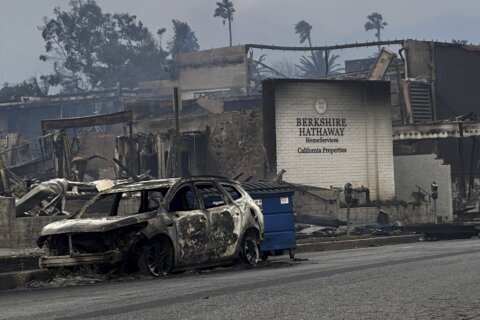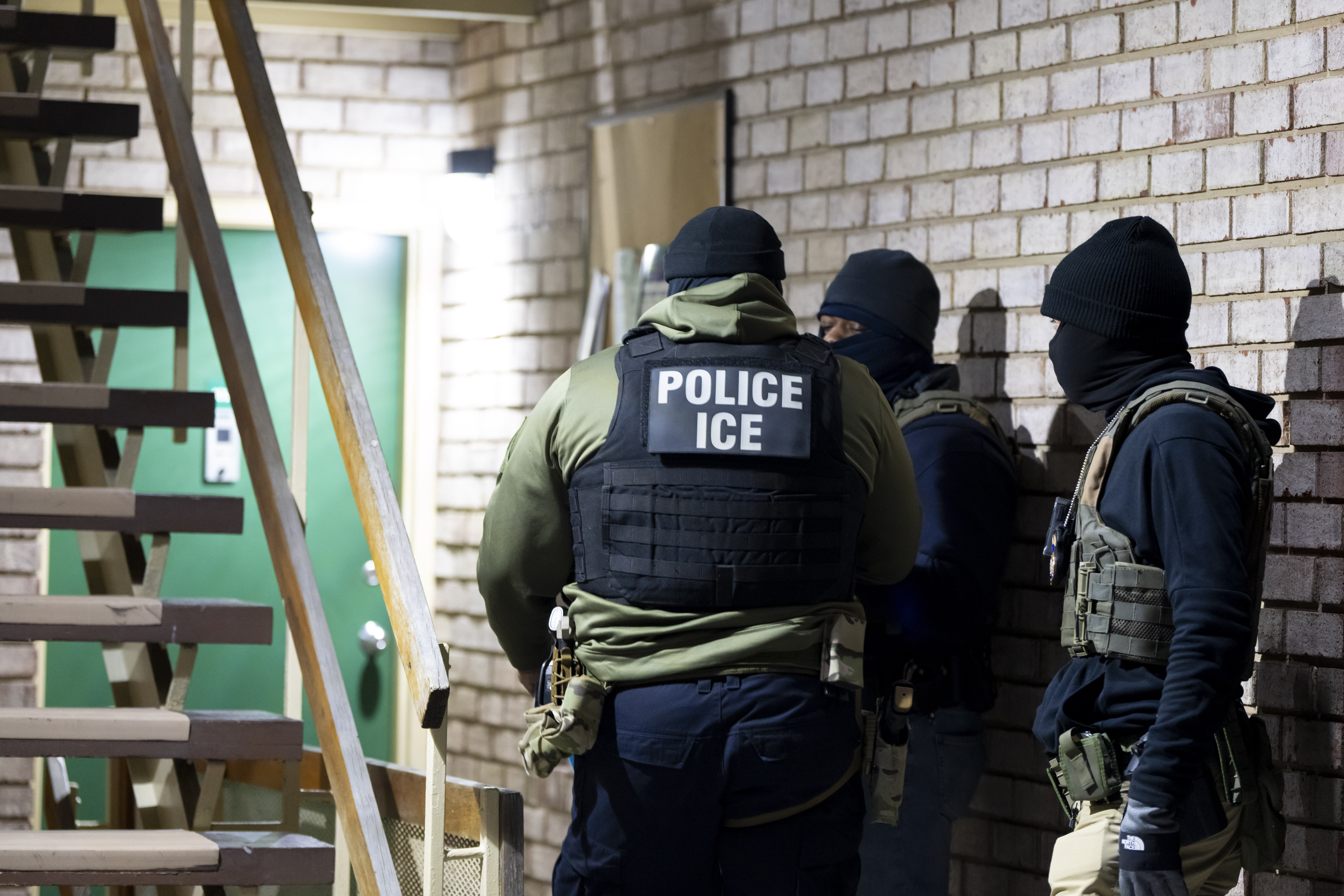ATLANTA (AP) — Local officials are beginning to certify the results of this year’s presidential election in a process that, so far, has been playing out quietly, in stark contrast to the tumultuous certification period four years ago that followed then-President Donald Trump’s loss.
Georgia was the first of the presidential battleground states to start certifying, with local election boards voting throughout the day Tuesday. As counties certified their results without controversy, Georgia Secretary of State Brad Raffensperger hailed Georgia’s election as “free, fair and fast.”
Trump won Georgia and the six other presidential battleground states, after losing six of them to Democrat Joe Biden in 2020. County certification meetings are scheduled later in the week in several other swing states — Nevada, North Carolina and Wisconsin.
The lack of certification drama so far this week is a return to how the typically routine process worked before Trump lost his bid for reelection four years ago. As he sought then to overturn the will of the voters, he and his allies pressured Republican members of certification boards in Michigan to delay or halt the process. They also sought to delay certifications in Arizona, Nevada and Pennsylvania.
The boards ultimately voted to certify, but Trump’s focus on certification caught on among Republicans. Some local Republican officials have refused to certify results in elections since then, raising concerns of a wider movement to reject certification this year had Trump lost to Vice President Kamala Harris.
Some of that sentiment was present on Tuesday. Michael Heekin, a Republican member of the Fulton County Board of Registration and Elections said he disagreed that certifying election results “is purely a ministerial duty.”
“We should be the first line of defense, at least one of the lines of defense in examining the goodness and the accuracy of the election,” he said.
A lawyer for the county, which includes heavily Democratic Atlanta, explained during the meeting that certification was a necessary step before any election challenge could proceed. The county election board certified the results late Tuesday.
Unlike Trump four years ago, Harris acknowledged her loss and conceded. Trump also won the popular vote for the first time during his three runs for the White House and praised the election results. Rather than descending on county ballot counting centers in anger, his supporters have been jubilant.
“This time four years ago, I was getting nasty phone calls constantly in my office,” said Lisa Tollefson, the elections clerk in Rock County, Wisconsin. This year, she said, “it’s been very quiet.”
That’s not to say everyone is happy. Conspiracy theories surrounding this year’s election are circulating within both parties.
Following Election Day, left-wing conspiracy theories proliferated on TikTok, X and other social platforms as users questioned why Harris’ total vote count was around 60 million — about 20 million fewer votes than Biden received four years ago.
Some right-wing accounts twisted the narrative, falsely claiming the vote gap was instead proof that Biden’s 2020 tally must have included fake votes.
The claims didn’t consider the fact that tabulation would take several days, including in Arizona and California, the nation’s most populous state. As votes continue to be counted this week, Harris has made up ground and now has nearly 72 million votes, a number that will continue to grow.
Counties and other local jurisdictions across the country will be conducting post-election audits of the vote over the next few weeks. Those typically involve hand-counting a certain number of ballots and comparing the results to machine tallies to ensure accuracy.
Before local results are certified, the top election official typically provides the vote totals by candidate in each race along with how many voters cast ballots and how many total ballots were cast. Any discrepancies get reported and explained.
“The whole point of this period is to find those types of errors,” said Kim Wyman, the former top election official in Washington state. “They are making sure the results were accurate, that the election was accurate.”
Every state will be going through the process, including presidential battlegrounds.
Election certification meetings start Wednesday in Nevada, which backed a Republican in the presidential race for the first time in 20 years. The state’s 17 counties have until Friday to certify, while Secretary of State Cisco Aguilar, a Democrat, and the Nevada Supreme Court must meet by Nov. 26 to finalize the statewide results.
Arizona’s 15 counties must certify by Nov. 21 and forward the results to the governor and secretary of state — both of whom are Democrats — for statewide certification four days later.
In North Carolina, where election officials recovered quickly after Hurricane Helene devastated the western part of the state, election boards in all 100 counties were scheduled to meet Friday to certify results.
Pennsylvania counties have until Nov. 25 to certify. Some larger counties were still reviewing and counting provisional ballots on Tuesday, the deadline for them to report unofficial results to the state. Litigation was possible with a U.S. Senate race hovering near the threshold for an automatic statewide recount.
Michigan’s 83 county canvassing boards have until Nov. 19 to review local results before forwarding them to the Board of State Canvassers. The four-member board, comprised of two Democrats and two Republicans, is scheduled to certify the results by Nov. 25.
In Wisconsin, counties began the canvass process on Tuesday and have until Nov. 19 to certify. The Wisconsin Elections Commission will review the county reports and the chair — currently a Democrat — will certify the results by Dec. 1.
The biggest potential problem in the state was identified on Election Day and corrected. Vote-tabulating machines used for mail ballots in Milwaukee were not properly sealed. A bipartisan decision was made to start over the process of counting the ballots once the problem was addressed.
The state’s nonpartisan top election administrator, Meagan Wolfe, said the election had been a success with no major problems. She attributed that to years of training and preparations by local election workers.
“Well-run elections do not happen by accident,” she said.
___
Swenson reported from New York. Associated Press writers Scott Bauer in Madison, Wisconsin; Jacques Billeaud in Phoenix; Joey Cappelletti in Lansing, Michigan; Christine Fernando in Chicago; Marc Levy in Harrisburg, Pennsylvania; Gary D. Robertson in Raleigh, North Carolina; and Rio Yamat in Las Vegas contributed to this report.
___
The Associated Press receives support from several private foundations to enhance its explanatory coverage of elections and democracy. See more about AP’s democracy initiative here. The AP is solely responsible for all content.
Copyright © 2025 The Associated Press. All rights reserved. This material may not be published, broadcast, written or redistributed.







